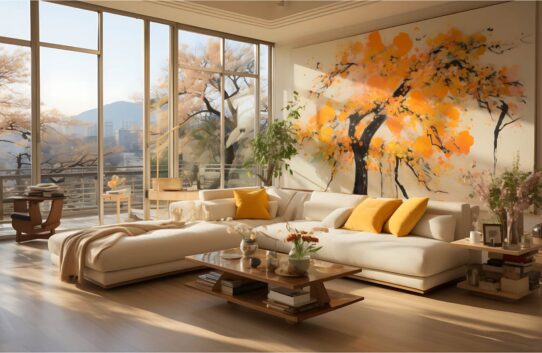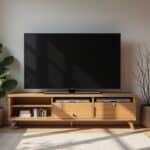The Great Home Design Showdown
Have you ever scrolled through endless home decor inspiration, drawn to clean lines and natural textures but also intrigued by bold pops of color and statement pieces? You might be wrestling with the age-old design debate: modern vs contemporary.
Both styles offer a sophisticated and stylish aesthetic, but with key differences that can impact the overall feel of your space. This blog post is your ultimate guide to the modern vs contemporary design showdown, helping you decide which style will transform your house into a home that reflects your unique personality.
Read also: 5 Most Aesthetic Cottagecore Trend In 2024
Modern Design in the Spotlight: Form Follows Function
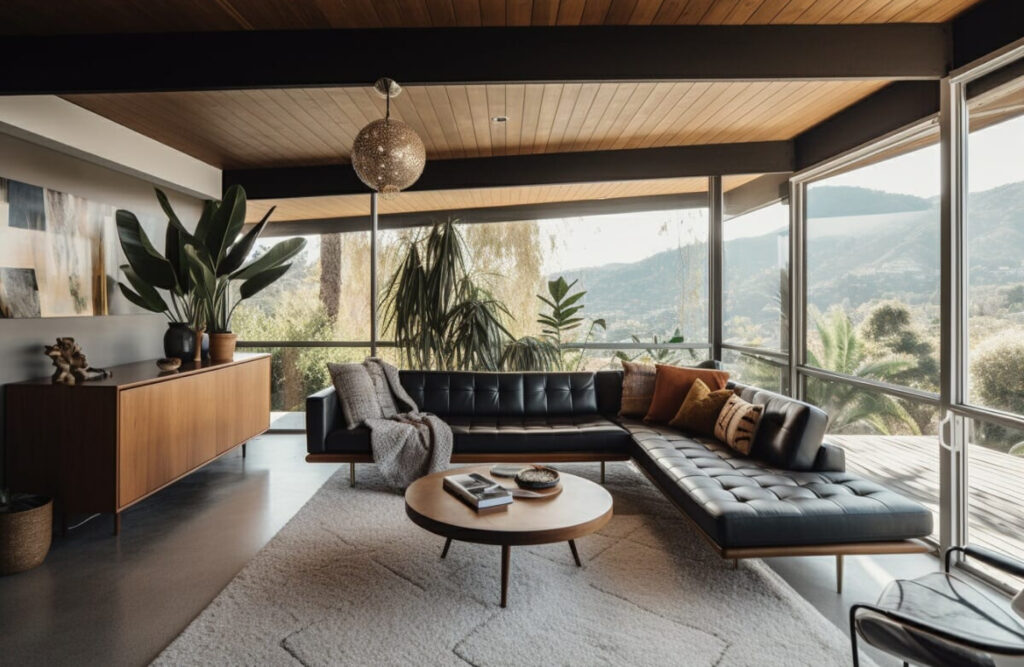
Modern design emerged in the early to mid-20th century, championing the philosophy of “form follows function.” Imagine clean lines, uncluttered spaces, and furniture pieces that prioritize functionality over elaborate ornamentation. Natural materials like wood, leather, and stone reign supreme, creating a sense of warmth and organic beauty.
Think iconic pieces like the Eames lounge chair with its sleek silhouette and plush comfort, or the Barcelona chair, a testament to minimalist elegance. Modern kitchens often boast sleek cabinetry, integrated appliances, and open floor plans that encourage a seamless flow between living areas.
Read also: Why Mid Century Modern Living Room Exist In 2024
Contemporary Design Takes the Stage: Embracing the Now
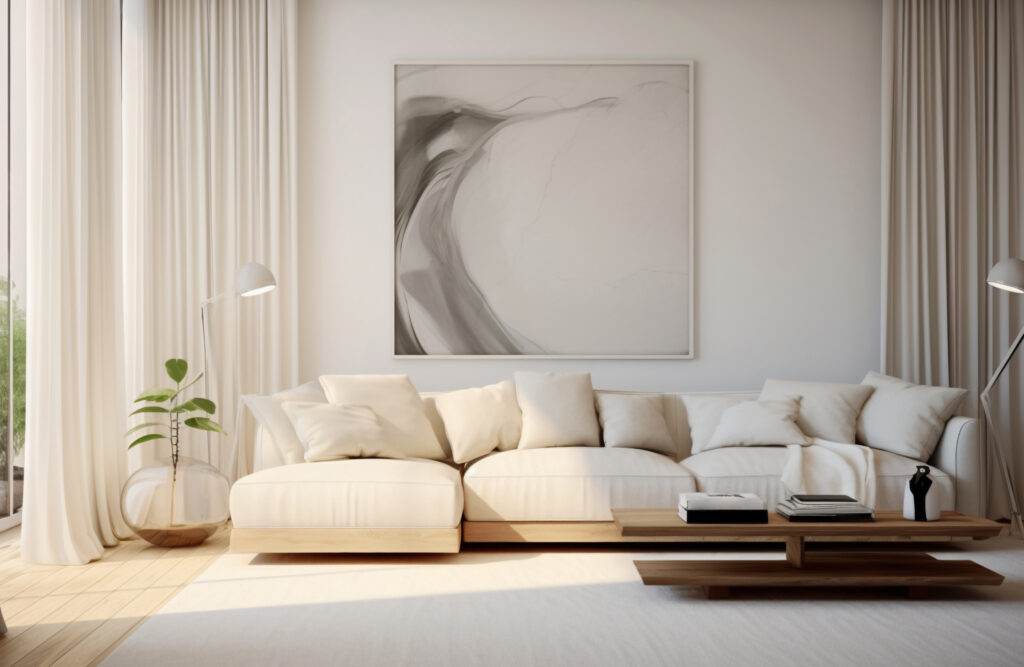
While modern design has a timeless quality, contemporary design thrives on being current. It reflects the ever-evolving trends of the moment, incorporating new technologies and materials to create a space that feels fresh and innovative.
Unlike the focus on natural materials in modern design, contemporary spaces embrace a wider variety. Polished concrete floors, sleek stainless steel accents, and pops of bold color can all play a role. Statement pieces with unique shapes and textures add a touch of personality, while open floor plans remain popular, fostering a sense of light and airiness.
Imagine a contemporary kitchen featuring high-gloss cabinets in a dramatic shade, paired with contrasting countertops and top-of-the-line appliances. Living rooms might boast a plush, low-slung sofa in rich velvet alongside a sculptural coffee table that serves as a conversation starter.
The Showdown: Modern vs Contemporary Break Down
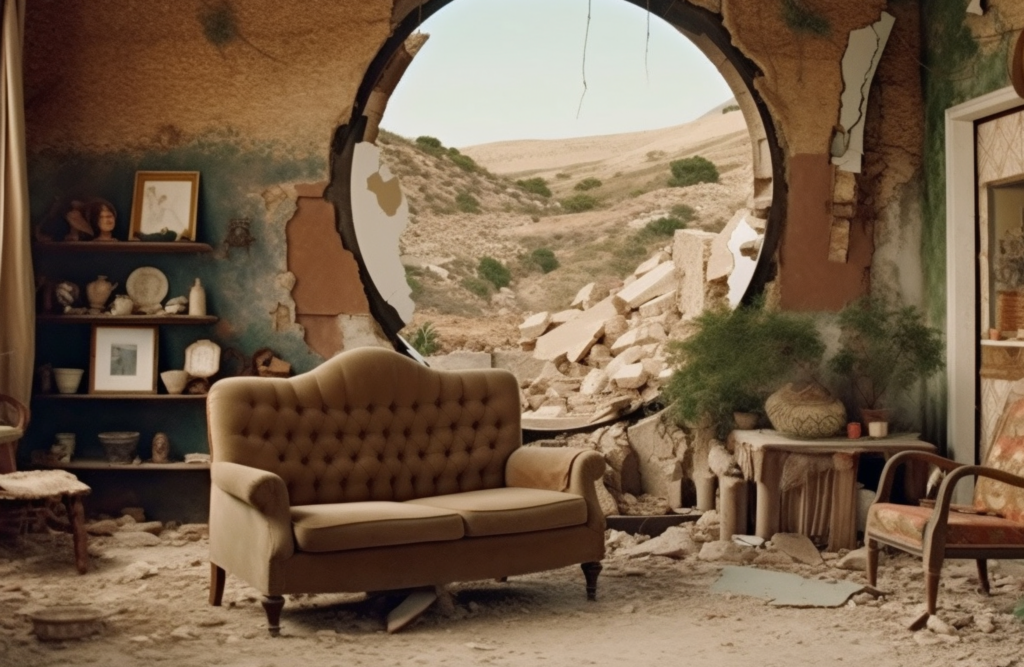
Now that we’ve explored the distinct personalities of modern and contemporary design, it’s time to decide which style will reign supreme in your home. But fear not, design isn’t a competition! This section will equip you with the tools to identify your design personality and choose the style that best reflects your taste and lifestyle.
Here’s a quick comparison table to get you started:
| Feature | Modern Design | Contemporary Design |
| Lines | Clean, simple, and uncluttered | Can be both clean and bold, with an emphasis on statement pieces |
| Materials | Natural materials like wood, leather, and stone | Wider variety, including metals, glass, and high-gloss finishes |
| Colors | Earthy tones and neutrals | Bold colors and pops of vibrancy |
| Overall Feel | Warm, minimalist, and organic | Sleek, sophisticated, and trend-driven |
Read also: Spring Sales 2024: Guide To A Luxury (And Cheaper) Furniture
Winning Design Strategies: Modern or Contemporary Magic

Now that you’ve identified your design champion (or are perhaps teetering between the two, just like me), let’s delve into some winning strategies to incorporate modern or contemporary elements into your existing décor.
Embracing Modern Magic:
- Start with clean lines: Opt for furniture with simple silhouettes and avoid pieces with excessive ornamentation.
- Natural materials matter: Introduce warmth with wood accents, leather throw pillows, or a woven rug.
- Less is more: Declutter your space and prioritize functionality over excessive décor.
Creating Contemporary Flair:
- Don’t be afraid of bold colors: Feature a statement wall in a rich jewel tone or add pops of color with artwork and accessories.
- Mix and match textures: Pair a sleek metal coffee table with a plush velvet sofa for a touch of contrast.
- Embrace statement pieces: A sculptural lamp or a unique art installation can add personality to your space.
Remember, these are just guidelines! The beauty of design lies in its flexibility. Don’t be afraid to experiment and create a space that feels uniquely you.
In Conclusion, Design is Harmony, Not Duality
Throughout this blog post, we’ve explored the exciting world of modern and contemporary design. While we’ve highlighted their key differences, it’s important to remember that design isn’t a competition. The true winner is the space that reflects your personality and creates a comfortable, stylish haven.
Perhaps you crave the timeless elegance of modern design, or maybe you’re drawn to the ever-evolving world of contemporary style. The beauty lies in finding inspiration from both and creating a space that is truly your own.
So, get creative, have fun, and don’t be afraid to experiment! Your dream home awaits.
